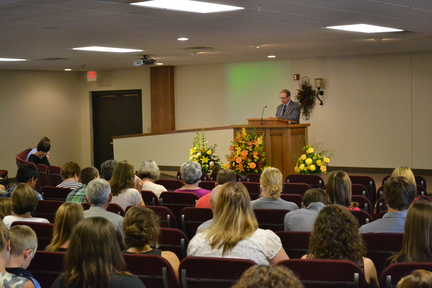A Favorite Problem

The Problem Defined
2:2 “if” This is a THIRD CLASS CONDITIONAL which refers to potential action. This refers to (1) hypothetical wealthy visitors coming to a Jewish, Christian worship meeting or (2) a synagogue-like Christian court setting.
The Poor Revealed
“did not God choose the poor of this world” “Choose” is an AORIST MIDDLE INDICATIVE (cf. Eph. 1:4). We get the English word “elect” from this Greek term. “Of this world” is literally “in this world” used in the sense of this world’s goods. The irony is that God has chosen to bless the poor and socially ostracized. God has chosen them and made them rich in faith and heirs of the kingdom, but the local worship leaders were favoring the wealthy and powerful. These were the very ones who were persecuting the early believers. The gospel being preached to the poor was a sign of the New Age (cf. Isa. 61ff; Matt. 11:5; Luke 1:51–53; 4:18; 7:22).
The poor have always felt ostracized from “official” religion, but they were wonderfully accepted and embraced by Jesus. The poor gladly accepted Christ, while the rich tended to trust in their own resources (cf. Matt. 19:23–26). This is not to imply that every poor person is saved, but they surely are welcome to come to Jesus. Most of the early church were from the poorer classes of society.
“the kingdom” This is a key phrase in the Synoptic Gospels. Jesus’ first and last sermons, and most of His parables, dealt with this topic.
The phrase relates to the eschatological (end-time) thrust of Jesus’ teachings (followed by James). This “already, but not yet” theological paradox relates to the Jewish concept of two ages, the current evil age and the righteous age to come, which will be inaugurated by the Spirit through the Messiah. The Jews expected only one coming of a Spirit-empowered military leader (like the Judges in the OT). The two comings of Jesus caused an overlapping of the two ages. The Kingdom of God has broken into human history with the incarnation at Bethlehem. However, Jesus came not as the military conqueror of Rev. 19, but as the Suffering Servant (cf. Isa. 53) and the humble leader (cf. Zech. 9:9). The Kingdom, therefore, is inaugurated (cf. Matt. 3:2; 4:17; 10:7; 11:12; 12:28; Mark 1:15; Luke 9:9, 11; 11:20; 21:31–32), but not consummated (cf. Matt. 6:10; 16:28; 26:64).
Believers live in the tension between these two ages. They have resurrection life, but they still are dying physically. They are freed from the power of sin, yet they still sin. They live in the eschatological tension of the already and the not yet!
